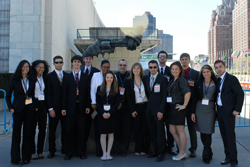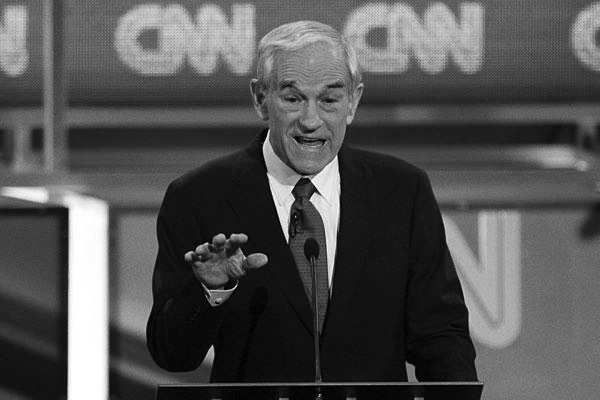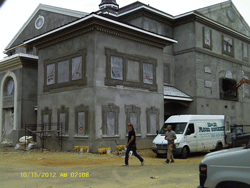Students Use Skills of Bargaining and Negotiation to Set Resolutions in New York City Conference
 The University’s Model United Nations (U.N.) team will spend the upcoming months researching and preparing for two of the largest international conferences where they will negotiate, bargain and propose resolutions for international conflicts.
The University’s Model United Nations (U.N.) team will spend the upcoming months researching and preparing for two of the largest international conferences where they will negotiate, bargain and propose resolutions for international conflicts.
Seven students will be traveling to represent the University in Rome from March 7-12. The remainder of the club will be attending the largest international conference in New York from March 24-28. They will be representing Belgium in the New York conference and are waiting for their country assignment from Rome.
“Fundraising for the conferences was okay, said Model U.N. President, Aziz Mama. “We received funds from Student Government, but it wasn’t enough to cover both conference expenses. We fundraised and received additional donations through the University, Provost Pearson’s office, deans and outside donations. The club is growing at an unexpected rate, and we’re going to need more funding to take delegations of a larger size,” said Mama.
Mama also discussed how there were only nine members in 2011 and has almost doubled in size for the past two years with 14 members in 2012 and 25 active members for the 2013 conference.
“It has completely exceeded our expectations,” said Mama.
Junior David Goldenthal discussed the attitude of the students in the club. “It [the club] attracted students who were dedicated and wanted to do well as a whole. We can bring more to the table and show what this club is about.” The group earned an honorable mention while representing Finland in 2011.
In 2012, the club was given a rare opportunity to represent two countries. 12 club members represented Luxembourg while Mama and Katelyn Nawoyski represented Portugal in the U.N. Security Council. “This was a much smaller committee and a bit more prestigious to be a part of, simply because so few schools get to be a part of the Council,” Nawoyski said.
Mama became involved with the program during his freshman year. “I started doing Model U.N. because I was involved in it during high school. I also wanted to make it less of a political science club and expand its influence into other majors,” he said.
The roster includes a variety of majors, including political science, biology, social work, international relations, economics, finance, communication and education.
Students will investigate issues addressing a large agenda; topics range anywhere from access to clean drinking water to nuclear crisis situations. “This is why we wanted more majors in the program. This event is beneficial for everyone,” said Mama.
The Political Science Department followed suit and will be offering Model U.N. as a four credit class during the spring semester.
Dr. Thomas Lamatsch, assistant professor of political science, doubles both as the professor for the class and advisor for the club.
There are two important things that this class will bring to the students. First, Model U.N. is a lot of work, and students have always been asking, ‘How can I get credit?’ So not only will these student’s receive credit for their work, the course also doubles as a traditional international relations course that teaches the students about the United Nations,” said Lamatsch.
The course description explains how it will introduce students to the U.N. and how it operates. It will also give them real life experiences by bargaining, negotiating and resolving international conflicts. Students will take theories and historical knowledge of their assigned country and learn how to apply them in practical and experiential components.
“If student’s want a class, we [the Political Science Department] will bring it back,” said Lamatsch.
Student can also earn their Experiential Education requirement upon completion of the week long conference. They will also be able to use the class as a springboard during actual negotiations at the international conferences.
“Each student also improves their public speaking, writing and researching skills. Negotiations also take place during informal caucus, so a student’s interpersonal skills will also improve,” said Mama.
PHOTO COURTESY of Katelyn Nawoyski


